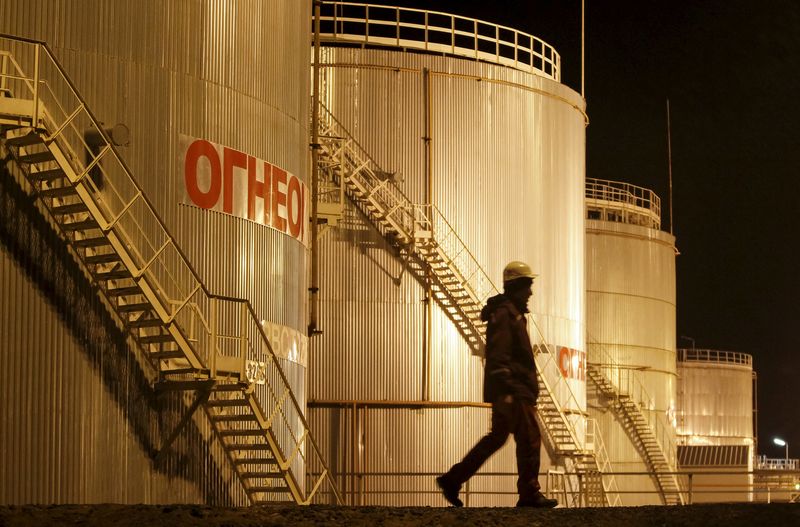Investing.com — Oil prices fell on Thursday as concerns over growing crude supplies continued, offsetting early gains following OPEC+’s decision to delay the restart of oil production increases by three months.
At 2:30 PM ET (19:30 GMT), the stock was down 0.3% at $72.09 per barrel, while trading was down 0.4% at $68.30 per barrel.
OPEC+ postpones production increases again
The Organization of the Petroleum Exporting Countries and Allies (OPEC+) has decided to postpone the restart of oil production increases by three months. This is the third postponement as crude oil prices remain under pressure.
The additional production of 180,000 barrels per day was expected to begin in January, but will instead begin in April and be implemented at a slower pace than previously indicated.
OPEC+ has cut production by more than 2 million barrels over the past two years and is expected to keep supply tight amid concerns about slowing oil demand, especially in top importer China.
OPEC+ has consistently lowered its forecasts for global demand growth in 2024 and 2025, citing uncertainty over a slow economic recovery in China.
Concerns about tepid demand come in the wake of fears that the crude oil market will enter an oversupply situation next year due to rising production from non-OPEC countries.
The risk of oversupply remains central
Wells Fargo (NYSE:) Analysts predict a shift in global oil market dynamics by mid-2025, predicting improved fundamentals and stronger prices after a period of oversupply.
They estimate a surplus of 1 million barrels per day in the first half of 2025, despite OPEC+ production cuts.
“Downside price risks outweigh upside risks until mid-2025,” the analysts noted, but they expect better conditions in the second half of the year.
The bank maintains long-term price forecasts of $80 for Brent and $75 for WTI, supported by slowing US shale production and Saudi Arabia’s preference for prices above $70 per barrel.
US oil inventories are falling, but products are rising
Government data released Wednesday shows the U.S. shrank by as much as 5.07 million barrels in the last week of November.
But inventories rose, indicating that overall fuel demand is still cooling in the world’s biggest fuel consumer.
While demand for heating fuels is expected to increase during the winter season, a decline in travel activity is expected to reduce overall oil demand.
Middle East in focus
Oil markets made some gains this week as the ceasefire between Israel and Hezbollah teetered on the brink of collapse, with reports of violations from both sides. Israel also threatened to escalate its offensive against Hezbollah and Lebanon if the ceasefire did not go through.
Meanwhile, Donald Trump’s Middle East envoy has traveled to Qatar and Israel to boost the new US president’s diplomatic push for an agreement on a ceasefire and the release of hostages in Gaza reach before he takes office on January 20, according to a Reuters report.
(Peter Nurse, Ambar Warrick contributed to this article.)


